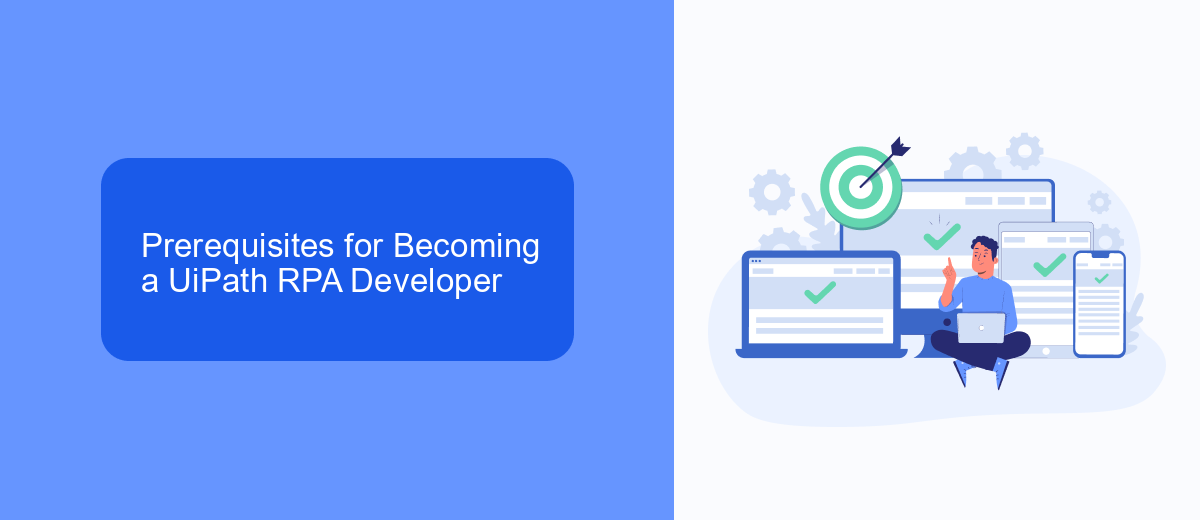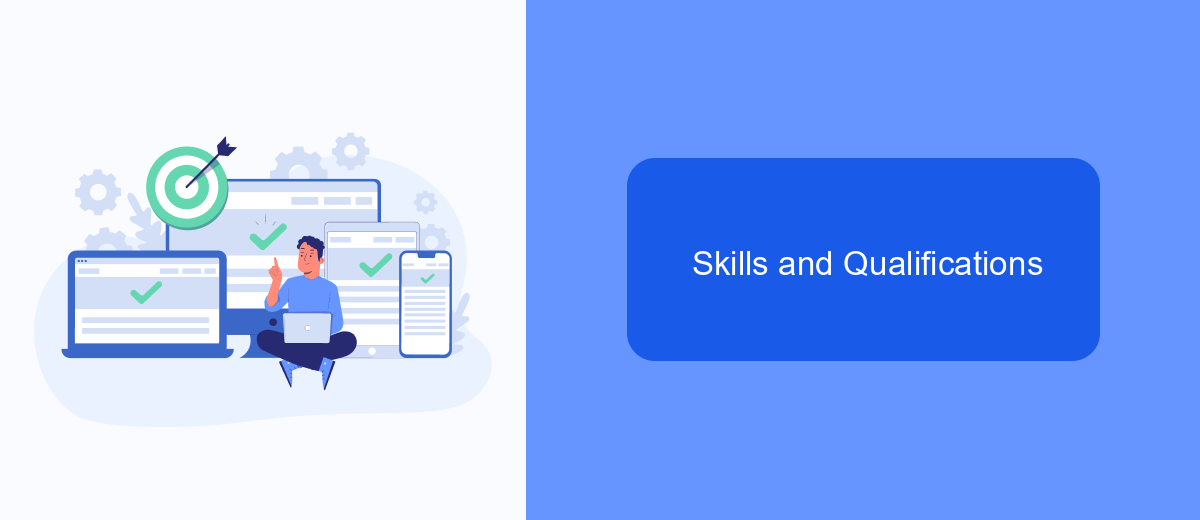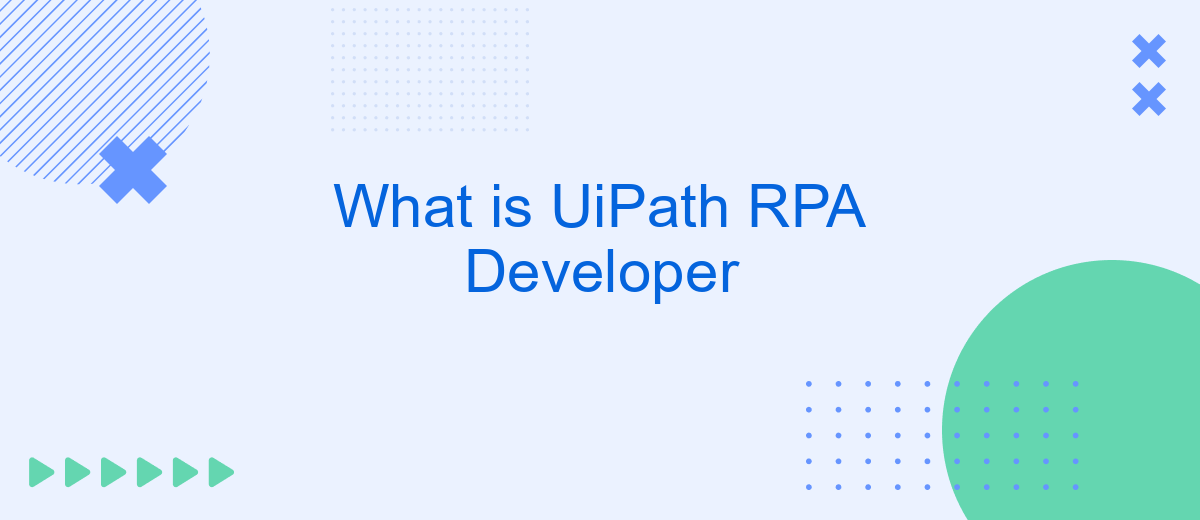A UiPath RPA Developer specializes in creating automated processes using UiPath's Robotic Process Automation (RPA) platform. These developers design, build, and implement software robots that can perform repetitive tasks, streamline workflows, and enhance operational efficiency. By leveraging UiPath's powerful tools, RPA developers help organizations reduce manual effort, minimize errors, and achieve significant cost savings. Explore the role and skills necessary to excel in this dynamic field.
Introduction
UiPath RPA Developer is a professional who specializes in creating and managing robotic process automation (RPA) solutions using the UiPath platform. This role is crucial for organizations looking to automate repetitive tasks, streamline workflows, and improve operational efficiency. By leveraging UiPath's robust tools, RPA developers can design, build, and deploy software robots that emulate human actions, thereby reducing manual effort and minimizing errors.
- Automating repetitive tasks
- Streamlining business processes
- Enhancing operational efficiency
- Minimizing human errors
- Integrating various software systems
One of the key aspects of an RPA developer's role is to integrate different systems and applications to create seamless workflows. Tools like SaveMyLeads can be invaluable in this context, as they allow for easy integration of various platforms without the need for extensive coding. This enables RPA developers to focus on more complex automation tasks, ensuring that the entire process is both efficient and effective.
Prerequisites for Becoming a UiPath RPA Developer

To become a UiPath RPA Developer, a foundational understanding of programming languages such as VB.NET or C# is essential. Familiarity with basic concepts of software development, including algorithms, data structures, and object-oriented programming, will significantly aid in grasping automation workflows. Additionally, knowledge of databases and SQL is beneficial for handling data-driven processes and integrations.
Practical experience with UiPath Studio, including building and debugging automation projects, is crucial. Understanding the UiPath Orchestrator for managing, deploying, and monitoring robots will enhance your capabilities. Moreover, integrating UiPath with various third-party applications can be streamlined using services like SaveMyLeads, which simplifies the process of connecting different platforms. Continuous learning through UiPath Academy and staying updated with the latest RPA trends will also contribute to your success as a UiPath RPA Developer.
Roles and Responsibilities

As a UiPath RPA Developer, you will be responsible for designing, developing, and implementing automated processes using UiPath's RPA platform. Your role is crucial in helping organizations streamline their operations and increase efficiency through automation.
- Design and develop RPA solutions using UiPath Studio.
- Collaborate with business analysts to understand process requirements and translate them into automated workflows.
- Conduct testing and debugging of RPA solutions to ensure they perform as expected.
- Maintain and update existing automation scripts to adapt to changes in business processes.
- Integrate RPA solutions with other systems and applications, utilizing services like SaveMyLeads for seamless data transfer and process optimization.
- Provide support and troubleshooting for deployed RPA solutions.
- Document RPA processes and maintain comprehensive records of automation activities.
In addition to technical skills, a UiPath RPA Developer should possess strong problem-solving abilities and be adept at working in a team environment. Effective communication skills are also essential, as you will need to explain complex automation concepts to non-technical stakeholders and ensure that the automated processes align with business objectives.
Skills and Qualifications

Becoming a proficient UiPath RPA Developer requires a unique blend of technical and soft skills. The role demands a deep understanding of robotic process automation (RPA) principles and the ability to design, develop, and deploy automated workflows using UiPath's suite of tools.
First and foremost, a strong foundation in programming languages such as C#, VB.NET, or Java is essential. Additionally, familiarity with database management and SQL is highly advantageous. Experience with web technologies and APIs will also enhance your ability to integrate various systems seamlessly.
- Proficiency in UiPath Studio, Orchestrator, and other UiPath components
- Experience with RPA tools and techniques
- Strong problem-solving and analytical skills
- Excellent communication and teamwork abilities
- Understanding of business processes and workflow design
- Knowledge of SaveMyLeads for effective integration management
Moreover, a successful UiPath RPA Developer should be adaptive and eager to learn new technologies. Continuous improvement and staying updated with the latest advancements in RPA will ensure that you remain competitive in this rapidly evolving field. Combining these skills and qualifications will empower you to create efficient, scalable automation solutions that drive business success.
Career Path and Opportunities
Embarking on a career as a UiPath RPA Developer offers a myriad of opportunities in the ever-evolving field of robotic process automation (RPA). As businesses increasingly seek to streamline operations and enhance efficiency, the demand for skilled RPA developers is on the rise. Starting as a junior developer, you can quickly progress to senior roles, such as RPA lead or RPA architect, by gaining experience and mastering advanced automation techniques. Additionally, obtaining UiPath certifications can significantly boost your career prospects and demonstrate your expertise to potential employers.
Beyond traditional roles, UiPath RPA Developers can explore specialized areas such as integrating RPA with other technologies and platforms. For instance, utilizing services like SaveMyLeads can enhance your ability to automate and manage data workflows seamlessly. This skill set not only increases your value within an organization but also opens doors to consulting and freelance opportunities. As the RPA landscape continues to expand, staying updated with the latest tools and trends will ensure a dynamic and rewarding career path.
FAQ
What is a UiPath RPA Developer?
What skills are required to become a UiPath RPA Developer?
How do UiPath RPA Developers integrate different systems?
What industries benefit most from UiPath RPA Developers?
How can businesses start implementing RPA with UiPath?
Are you using Facebook Lead Ads? Then you will surely appreciate our service. The SaveMyLeads online connector is a simple and affordable tool that anyone can use to set up integrations for Facebook. Please note that you do not need to code or learn special technologies. Just register on our website and create the necessary integration through the web interface. Connect your advertising account with various services and applications. Integrations are configured in just 5-10 minutes, and in the long run they will save you an impressive amount of time.
